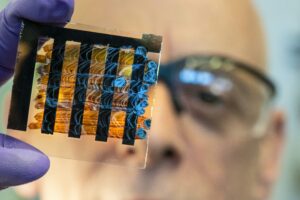
The Biodiversity Collections Network (BCoN), in partnership with the American Institute of Biological Sciences (AIBS), has unveiled an ambitious roadmap for the creation of an integrated biological and environmental data network. This initiative, known as the Building an Integrated, Open, Findable, Accessible, Interoperable, and Reusable (BIOFAIR) Data Network project, seeks to bridge the gaps in fragmented data systems. The project addresses critical global challenges such as biodiversity loss, climate change, invasive species, and emerging public health threats.
The announcement comes as the project was recently detailed in the journal BioScience. It is the result of extensive community engagement involving ecological, climate, environmental, genetic, health, biodiversity informatics, and federal stakeholders. Through six virtual listening sessions, the project engaged 199 stakeholders from 142 organizations, culminating in a workshop with 75 participants representing 110 organizations and initiatives. This collaborative effort identified five key themes to guide the integration of data: stocktaking and gap analysis, technological capacity building, best practices and standards, education and training, and community building.
Uniting Diverse Data Sources
Biodiversity collections, which encompass over a billion specimens in the United States alone, offer a wealth of information critical for understanding evolution, biological processes, and biodiversity responses to environmental changes. The project’s authors highlight the potential of linking species occurrence data from these collections with other biological and environmental data sources. This integration could significantly enhance research across multiple fields, including biology, ecology, public health, and environmental science.
“An integrated data network… could enable transformative research across biology, ecology, public health, and environmental science,” the authors assert.
Such an infrastructure could prove invaluable for forecasting biodiversity changes, predicting the spread of invasive species, and shaping public health policies in response to emerging diseases.
Building a Collaborative Framework
The project emphasizes that the success of the BIOFAIR Network hinges on both robust technical infrastructure and widespread community involvement. The organizers advocate for an inclusive, collaborative, and sustainable community of data providers, managers, and users. This community must transcend technical, educational, and policy boundaries to facilitate collective data sharing.
According to sources involved in the project, this initiative represents a significant step forward in data integration efforts. By fostering a culture of collaboration, the BIOFAIR Network aims to create a seamless exchange of information that can drive scientific discovery and inform policy decisions.
Looking Ahead
Funded by the National Science Foundation (DBI award no. 2303588), the BIOFAIR Data Network project is poised to make a lasting impact on the scientific community. As the project progresses, stakeholders are optimistic about its potential to transform how biological and environmental data are utilized and shared.
More information about the BIOFAIR Data Network project can be found at https://bcon.aibs.org/biofair.
The move represents a crucial development in the ongoing effort to harness the power of data to address some of the most pressing issues facing our planet. As the BIOFAIR initiative gains momentum, it is expected to serve as a model for future projects aimed at integrating complex data systems to foster innovation and drive meaningful change.







